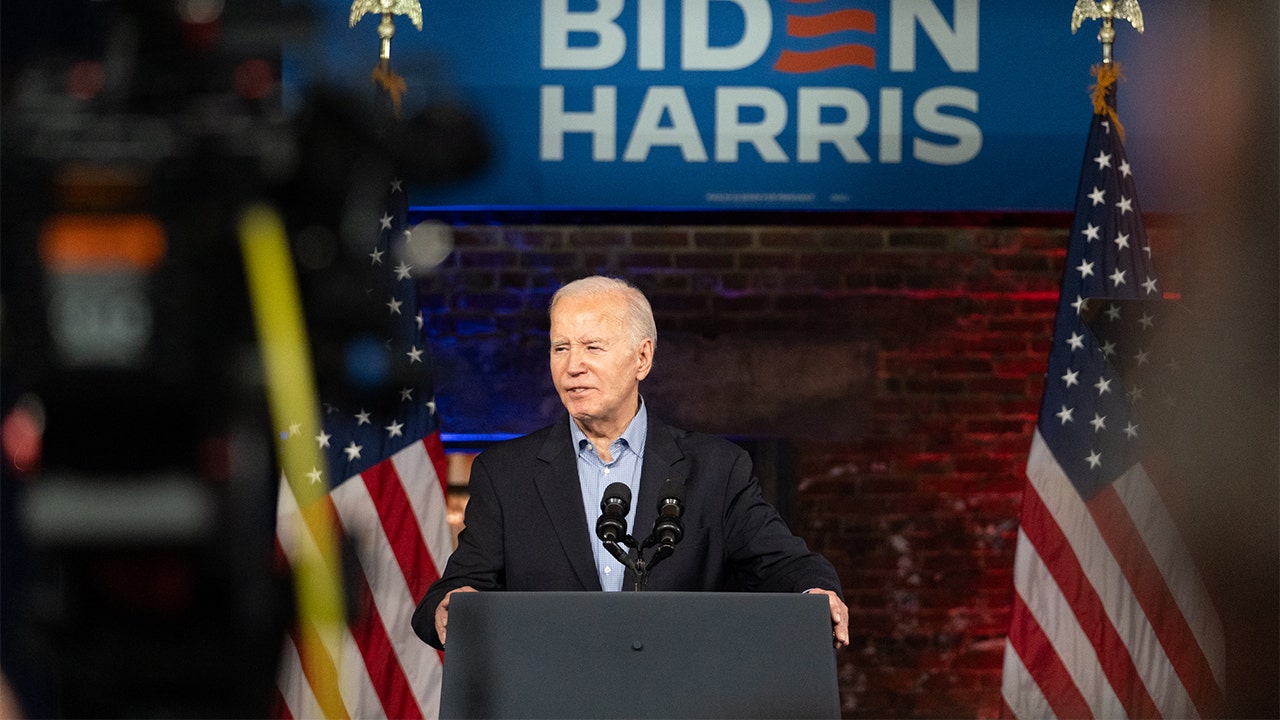Former President Donald J. Trump once again criticized Jews who back Democratic candidates on Wednesday, saying that “any Jewish person that votes for a Democrat or votes for Biden should have their head examined.”
His comments, made to reporters in Atlanta as he was attacking President Biden’s approach to Israel’s war in Gaza, marked the third time in the last month that Mr. Trump has cast aspersions on Democrat-supporting Jewish voters, a group that in the past he has accused of disloyalty.
Mr. Trump has received blowback over such remarks for years, with critics saying that they revive an antisemitic trope that Jews have a “dual loyalty” and are more loyal to Israel or their religious beliefs than to their own countries.
A Biden campaign spokesman, James Singer, condemned Mr. Trump’s comments as divisive. “Jewish Americans do not need to be ‘spoken to’ or threatened by Donald Trump,” Mr. Singer said, adding, “This is what Trump does, using division and hate as political weapons while seeking power for himself.”
Mr. Trump has for years been trying to peel American Jews, a substantial majority of whom are liberal, away from the Democratic Party. Those efforts have intensified since the start of the war in Gaza, which exposed divisions among Democrats over how the Biden administration has handled it.
But in seeking recently to win Jewish voters’ support, Mr. Trump has repeatedly castigated American Jews who do not support his candidacy as insufficiently loyal to Israel. On Monday, during an interview on the right-wing channel Real America’s Voice, Mr. Trump said that “any Jewish person that votes for Biden does not love Israel, and frankly, should be spoken to.”
And last month, Mr. Trump told Sebastian Gorka, a former White House aide who now hosts a conservative talk-radio program, that any Jewish person who backed Democrats “hates their religion” and hates “everything about Israel.”
Since Hamas led an attack on Israel on Oct. 7, Mr. Biden has maintained support for Israel despite increasingly vocal opposition from critics within his own party who say he has not done enough to address civilian deaths in Gaza.
But as the humanitarian crisis within Gaza has extended past six months, Mr. Biden has increasingly taken a more critical stance toward Israel. Last week, after the killing of seven humanitarian aid workers in Gaza, Mr. Biden threatened to condition future support for Israel on how the country addresses his concerns about its military conduct.
Mr. Trump has had comparatively less to say about the war. Days after the attack, he criticized Israel’s prime minister, Benjamin Netanyahu, and Israeli intelligence services for being unprepared. After receiving swift criticism, Mr. Trump quickly pivoted to express support for the country’s right to defend itself.
But Mr. Trump drew criticism from staunch Israel supporters on the right after an interview last month in which he said that Israel was losing public support, in part because images of the destruction in Gaza were ruining the country’s global reputation.
“Israel has to be very careful, because you’re losing a lot of the world,” Mr. Trump said in the interview with Israel Hayom, a conservative Israeli news outlet. “You’re losing a lot of support. You have to finish up. You have to get the job done.”
And last week, Mr. Trump told Hugh Hewitt, a conservative radio host, that Israel was “losing the P.R. war” because it was releasing images of its military campaign online.
As president, Mr. Trump consistently favored Israel against the Palestinians. He moved the U.S. embassy to Jerusalem, recognized Israel’s sovereignty over the Golan Heights and brokered accords between Israel and four Arab states.
On Wednesday, he tried to portray himself once more as Israel’s most aggressive supporter. He told reporters that Mr. Biden, who has faced protests from within his party for continuing to provide military aid to Israel, has “totally abandoned” the country.
“Biden has totally lost control of the Israel situation,” Mr. Trump said.
Even as he seemed to make a direct appeal to American Jews, for at least the third time this month Mr. Trump framed the upcoming election as a referendum on Christian values, saying that Election Day would also be “Christian Visibility Day,” when Christians would turn out in droves to vote for him.
The appellation was a nod to a conservative firestorm that erupted last month after Mr. Biden formally acknowledged Transgender Day of Visibility, which is observed annually on March 31 and this year coincided with Easter.
But Mr. Trump’s response to the controversy was in line with his efforts to frame his third presidential campaign as a crusade to defend Christian values from the left, even as he never showed interest in religion before entering politics.
Last month, he endorsed a $60 Bible that comes with printed copies of some of the nation’s founding documents. “Religion and Christianity are the biggest things missing from this country,” he said in a video promoting the new Bible, adding, “We must make America pray again.”






